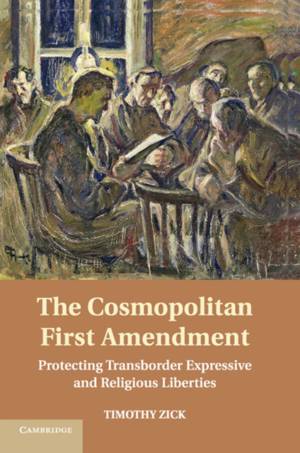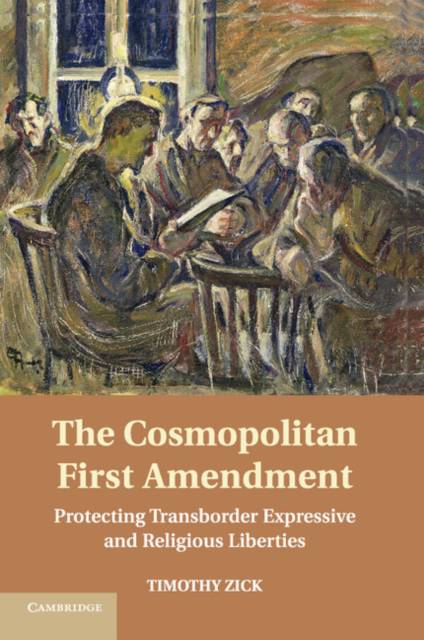
- Afhalen na 1 uur in een winkel met voorraad
- Gratis thuislevering in België vanaf € 30
- Ruim aanbod met 7 miljoen producten
- Afhalen na 1 uur in een winkel met voorraad
- Gratis thuislevering in België vanaf € 30
- Ruim aanbod met 7 miljoen producten
Zoeken
The Cosmopolitan First Amendment
Protecting Transborder Expressive and Religious Liberties
Timothy Zick
Paperback | Engels
€ 74,95
+ 149 punten
Uitvoering
Omschrijving
We live in an interconnected world in which expressive and religious cultures increasingly commingle and collide. In a globalized and digitized era, we need to better understand the relationship between the First Amendment to the United States Constitution and international borders. This book focuses on the exercise and protection of cross-border and beyond-border expressive and religious liberties, and on the First Amendment's relationship to the world beyond U.S. shores. The examination reveals a cosmopolitan First Amendment that protects robust cross-border conversation and commingling, facilitates the global spread of democratic principles, recognizes expressive and religious liberties regardless of location, is influential across the world despite its exceptionalist character, and encourages respectful engagement with the liberty regimes of other nations. The cosmopolitan First Amendment is the product of a variety of historical, social, political, technological, and legal developments. Its principles and justifications are presented through an examination of the First Amendment's relationship to foreign travel, immigration, cross-border communication and association, religious activities that traverse international borders, conflicts among foreign and U.S. speech and religious liberty models, and the conduct of international affairs and diplomacy.
Specificaties
Betrokkenen
- Auteur(s):
- Uitgeverij:
Inhoud
- Aantal bladzijden:
- 460
- Taal:
- Engels
Eigenschappen
- Productcode (EAN):
- 9781107547216
- Verschijningsdatum:
- 6/08/2015
- Uitvoering:
- Paperback
- Formaat:
- Trade paperback (VS)
- Afmetingen:
- 152 mm x 229 mm
- Gewicht:
- 607 g

Alleen bij Standaard Boekhandel
+ 149 punten op je klantenkaart van Standaard Boekhandel
Beoordelingen
We publiceren alleen reviews die voldoen aan de voorwaarden voor reviews. Bekijk onze voorwaarden voor reviews.











